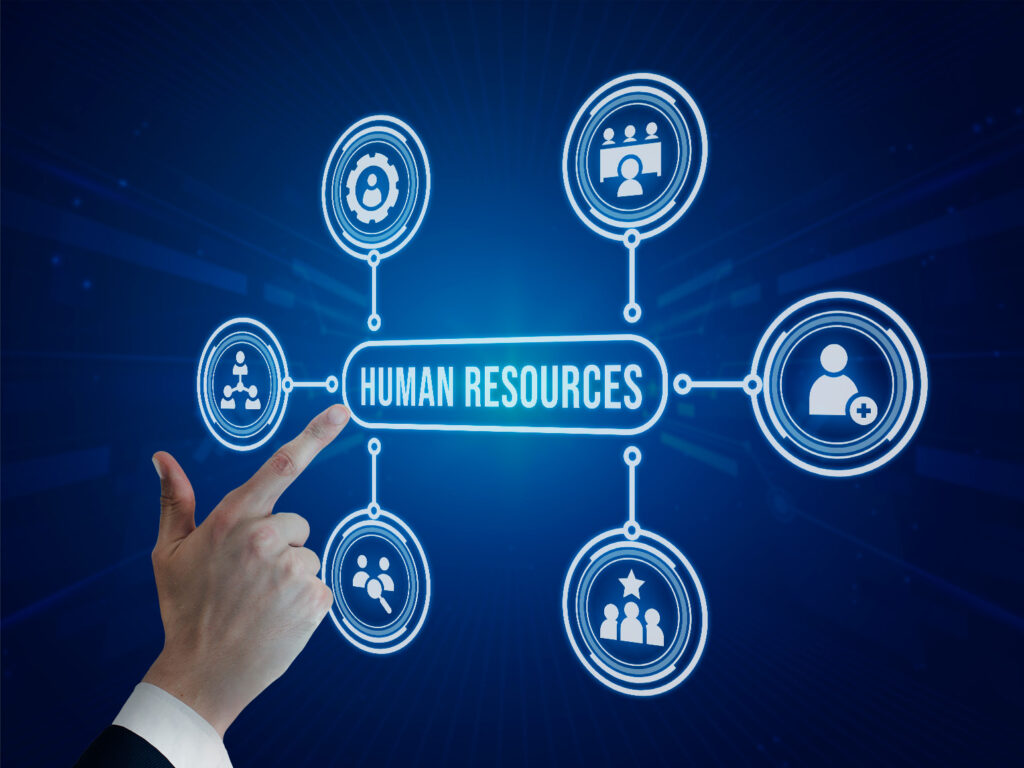Artificial intelligence (AI) is transforming the HR function in a number of ways. AI-powered tools and technologies can help HR professionals to automate tasks, personalize experiences, and make better decisions.
Here are some specific examples of how AI is being used in HR today:
- Recruitment: AI is helping recruiters to identify and screen candidates more efficiently and effectively. For example, AI-powered chatbots can pre-screen candidates and provide recruiters with insights into their skills and experience. AI can also be used to analyze resumes and job applications to identify qualified candidates.
- Talent management: AI is helping organizations to develop and implement more personalized talent management strategies. For example, AI can be used to identify employees with the skills and potential to take on new roles. AI can also be used to create personalized development plans for employees.
- Learning and development: AI is helping organizations to deliver more engaging and effective learning and development programs. For example, AI can be used to create personalized learning paths for employees and to provide them with feedback on their progress. AI can also be used to develop interactive simulations and games that help employees to learn new skills.
- Performance management: AI is helping organizations to automate performance management processes and provide more timely and relevant feedback to employees. For example, AI can be used to track employee performance and to identify areas where they need additional support. AI can also be used to generate personalized performance reviews for employees.
- Compensation and benefits: AI is helping organizations to design and implement more competitive and equitable compensation and benefits packages. For example, AI can be used to analyze market data and to identify comparable salaries for different positions. AI can also be used to develop personalized benefits packages for employees.
- Employee relations: AI is helping organizations to improve employee engagement and satisfaction by identifying and addressing potential problems early on. For example, AI can be used to analyze employee surveys and social media posts to identify common concerns. AI can also be used to develop targeted interventions to address these concerns.
Benefits of using AI in HR
There are a number of benefits to using AI in HR, including:
- Increased efficiency: AI can help to automate many time-consuming tasks, such as screening resumes, processing payroll, and tracking employee performance. This can free up HR professionals to focus on more strategic initiatives.
- Improved decision-making: AI can help HR professionals to make better decisions by providing them with insights into data that they would not be able to analyze on their own. For example, AI can be used to identify trends in employee turnover or to predict which employees are likely to be successful in new roles.
- Personalized experiences: AI can be used to personalize the employee experience in a number of ways. For example, AI can be used to recommend learning and development programs to employees based on their skills and interests. AI can also be used to create personalized career paths for employees.
Challenges of using AI in HR
While there are many benefits to using AI in HR, there are also some challenges, including:
- Bias: AI systems can be biased, just like humans. It is important to be aware of this potential bias and to take steps to mitigate it. For example, it is important to use diverse training data for AI systems and to have human oversight of AI-powered decisions.
- Privacy: AI systems collect and analyze large amounts of employee data. It is important to have policies in place to protect the privacy of this data. For example, employees should be informed about how their data is being used and they should have the right to opt out of data collection and analysis.
- Cost: AI systems can be expensive to develop and implement. It is important to carefully consider the costs and benefits before implementing an AI system.
Overall, AI is transforming the HR function in a number of ways. AI-powered tools and technologies can help HR professionals to automate tasks, personalize experiences, and make better decisions.
Here are some specific examples of how AI is being used in HR by companies today:
- Google: Google is using AI to develop personalized learning and development programs for its employees. Google also uses AI to predict which employees are likely to be successful in new roles.
- IBM: IBM is using AI to automate its performance management process. IBM also uses AI to identify employees who are at risk of leaving the company.
- Microsoft: Microsoft is using AI to develop personalized benefits packages for its employees. Microsoft also uses AI to identify employees who are at risk of burnout.
